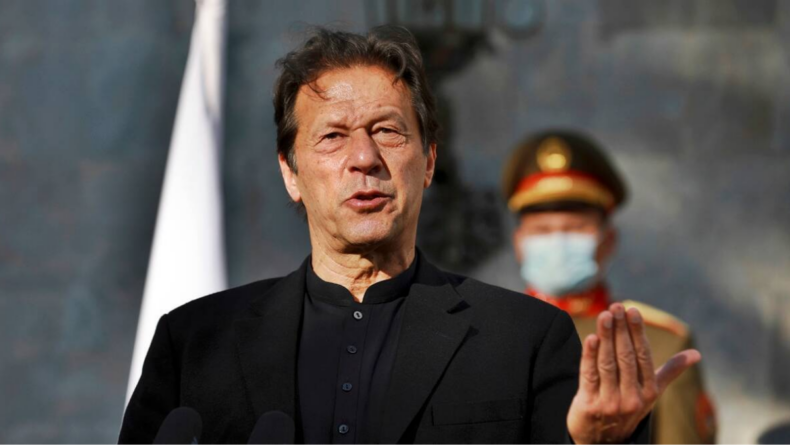The political and economic crisis going on in Pakistan is going ahead full steam. The former PM and cricketer-made politician Imran Khan has been removed as the PM by the passage of a no-confidence vote in the National assembly. Before the voting was done and he was removed we come to know that he made several desperate attempts to keep power in his hands.
He even went as far as changing the Chief of Army Staff of Pakistan and declaring a state of emergency just so that he can remain as the PM. Hours before Imran Khan’s ouster in a no-trust vote, till 8 pm, the establishment was okay with delayed voting on the no-confidence motion, said sources.
They were, in fact, even willing to accept his “threat letter” and “foreign conspiracy” theory, sources said. The fatal mistake of moving a file to remove Army chief General Qamar Bajwa cost Mr. Khan his job.
While the opposition in Pakistan is talking about undoing the wrong done in appointing Imran Khan as the PM and his party is walking out of the national assembly in protest, we see Mr. Khan going to extensive lengths to protect himself and the office he formerly held.
As a political strategy, Khan wanted Faiz Hameed to replace Bajwa as the Army chief so that he could manage Muttahida Qaumi Movement (MQM), Balochistan Awami Party (BAP), and Akhtar Mangal Group. Once that was achieved, it could have been easy for Khan to clear the no-trust vote, or even if he had failed, the margin would have been small.
According to various media reports, Khan made a botched attempt to replace Pakistan Army chief General Qamar Javed Bajwa to bring in someone more pliant and sympathetic to his idea of “foreign conspiracy” and cling on to power.
A petition was prepared by Advocate Adnan Iqbal to challenge the possible removal of Gen. Bajwa as Army chief. The Islamabad High Court was opened in the night to take up the matter forthwith if the notification was issued by the ministry of defense.
Separately, The Express Tribune newspaper reported that an emergency petition was filed in the Islamabad High Court (IHC) on Saturday night, seeking to restrain Prime Minister Khan from de-notifying Chief of Army Staff (COAS) Gen. Bajwa.
Khan in a meeting with a group of his favourite journalists told them that there was no truth in the rumor that he was trying to replace the Army chief.
The truth is that the country was on the edge and survived a major crisis. The Supreme Court also decided to open its gates and Chief Justice Umar Ata Bandial arrived at the apex court to immediately take action in a legal crisis.
The Opposition also prepared two petitions to file at the end of the deadline after midnight. One petition was about the contempt of court by Speaker Asad Qaiser and other officials, and another was for the implementation of the court order to hold voting on the no-confidence motion.
Khan had been meeting his top officials and political advisors till the very end. He held an emergency Cabinet meeting and also met twice with Speaker Qaisar, who, after coming back from the second meeting, resigned at around 11:45 PM.
It paved the way for voting before the end of the day as directed by the Supreme Court and averted the chaos.
While it’s true that no Prime Minister in Pakistan has completed a full five-year term, Imran Khan became the first PM to be altered by a no-confidence vote. Is this a win for democracy and freedom in a country that since its inception has struggled with political stability and regime changes?













